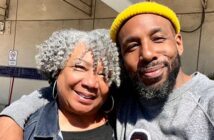Renowned singer, actor, producer, and legendary civil rights trailblazer Harry Belafonte has died at the age of 96.
His publicist confirmed that the beloved icon died Tuesday of congestive heart failure at his home in New York.
In addition to his children Adrienne Belafonte Biesemeyer, Shari Belafonte, Gina Belafonte, David Belafonte and two stepchildren Sarah Frank and Lindsey Frank, Belafonte leaves behind eight grandchildren: Rachel Blue Biesemeyer, Brian Biesemeyer, Maria Belafonte McCray, Sarafina Belafonte, Amadeus Belafonte, Mateo Frank, Olive Scanga and Zoe Frank.
Known globally for both for his artistic ingenuity and humanitarian ideals, Belafonte became an early, vocal supporter of the civil rights movement, a confidant of Dr. Martin Luther King Jr., and financial backer of countless historic political and social causes and events, including the anti-Apartheid Movement, equal rights for women, juvenile justice, climate change and the decolonization of Africa.
He was one of the organizers of the 1963 March on Washington and led a delegation of Hollywood luminaries including his best friend Sidney Poitier, as well as Paul Newman, Sammy Davis Jr., Marlon Brando, Rita Moreno, Tony Curtis, James Baldwin, Burt Lancaster, Joanne Woodward, Diahann Carrol, Bob Dylan, Mahalia Jackson, Peter, Paul and Mary and Joan Baez, Ruby Dee and Ossie Davis and Tony Curtis.
Born to immigrant parents in Harlem on March 1, 1927, Belafonte spent much of his youth in Jamaica. While life in Jamaica was difficult at times, spending time in his mother’s home country was full of cultural experiences that influenced Belafonte’s life, art and activism.
At the beginning of World War II, Belafonte returned to Harlem with his mother and brother, but had trouble integrating into the new environment, before later dropping out of high school to join the U.S. Navy.
After being honorably discharged, according to TheHistoryMakers.org, Belaftonte went back to New York, where he worked various jobs until he received two free tickets to the American Negro Theatre (A.N.T.) — a moment that changed his life.
Belafonte auditioned for the A.N.T. and earned his first leading role in ”Juno and the Paycock.”
Soon after, his career took off. He made his film debut opposite Dorothy Dandridge in “Bright Road,” in 1953 and won a Tony for his performance in “Almanac,” in 1954.
Belafonte’s third album, “Calypso,” topped the charts for 31 consecutive weeks and was the first record to sell more than 1 million copies. The multifaceted artist also secured a television outlet with his hourlong special, “Tonight with Belafonte,” which won him an Emmy.
A barrier-breaking talent and entrepreneur, Belafonte became the first African American TV producer and his company, HarBel, went on to produce multi-Emmy-nominated works.
In the early 1950s, the artist-turned-activist developed a strong relationship with Dr. Martin Luther King Jr. Belafonte worked tirelessly to mobilize artists in support of the civil rights movement.
In 1985, he rallied the global artistic community to raise awareness of the famines, wars and droughts plaguing many African nations. His work with United Support of Artists (USA) for Africa raised more than $60 million, with “We Are the World” and “Hands Across America.”
A longtime anti-apartheid activist, Belafonte hosted former South African President Nelson Mandela on his triumphant visit to the United States.
Until his death, Belafonte maintained his commitment to service as a UNICEF goodwill ambassador.


